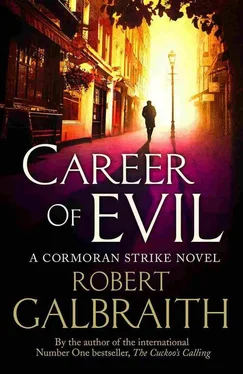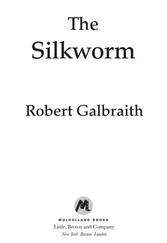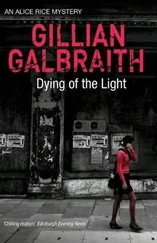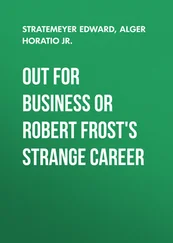Automatically she performed the usual start-of-the-working-day tasks: took off her coat, hung it up with her handbag on a peg beside the door, filled and switched on the kettle, and stowed the holdall under her desk, where Strike would not see it. She kept turning back to check that she’d done what she had meant to do, feeling disembodied, like a ghost whose chilly fingers might slip through the handles of handbags and kettles.
It had taken four days to dismantle a relationship that had lasted nine years. Four days of mounting animosity, of grudges aired and accusations hurled. Some of it seemed so trivial, looking back. The Land Rover, the Grand National, her decision to take her laptop home. On Sunday there had been a petty squabble about whose parents were paying for the wedding cars, which had led yet again to an argument about her pitiful pay packet. By the time they had got into the Land Rover on Monday morning to drive back home, they had barely been speaking.
Then last night, at home in West Ealing, had come the explosive argument that had rendered all the squabbling that had gone before trivial, mere warning tremors of the seismic disaster that would lay waste to everything.
Strike would be down shortly. She could hear him moving around in the flat upstairs. Robin knew that she must not look shaky or unable to cope. Work was all she had now. She would have to find a room in somebody else’s flat, which would be all she would be able to afford on the pittance Strike paid her. She tried to imagine future housemates. It would be like being back in halls of residence.
Don’t think about that now.
As she made tea she realized that she had forgotten to bring in the tin of Bettys tea bags she had bought shortly after trying on her wedding dress for the last time. The thought almost overset her, but by a powerful effort of will she restrained the urge to cry and took her mug to the computer, ready to trawl through the emails she had not been able to answer during their week of exile from the office.
Strike, she knew, had only just got back from Scotland: he had returned on the overnight train. She would make conversation about that when he appeared, so as to keep attention away from her red, swollen eyes. Before leaving the flat this morning she had tried to improve their appearance with ice and cold water, but with limited success.
Matthew had tried to block her path as she headed out of the flat. He had looked ghastly too.
“Look, we’ve got to talk. We’ve got to.”
Not anymore, thought Robin, whose hands shook as she lifted the hot tea to her lips. I haven’t got to do anything I don’t want to do anymore.
The brave thought was undermined by a single hot tear that leaked without warning down her cheek. Horrified, she brushed it away; she had not thought that she had any tears left to cry. Turning to her monitor she began typing a reply to a client who had queried his invoice, hardly knowing what she wrote.
Clanging footsteps on the stairs outside made her brace herself. The door opened. Robin looked up. The man who stood there was not Strike.
Primal, instinctive fear ripped through her. There was no time to analyze why the stranger had such an effect on her; she only knew that he was dangerous. In an instant she had calculated that she would not be able to reach the door in time, that her rape alarm was in her coat pocket and that her best weapon was the sharp letter-opener lying inches from her left hand.
He was gaunt and pale, his head was shaven, a few freckles were scattered across a broad nose and his mouth was wide and thick lipped. Tattoos covered his wrists, knuckles and neck. A gold tooth glinted on one side of his grinning mouth. A deep scar ran from the middle of his upper lip towards his cheekbone, dragging his mouth upwards in a permanent Elvis-style sneer. He wore baggy jeans and a tracksuit top and he smelled strongly of stale tobacco and cannabis.
“’S’up?” he said. He repeatedly clicked the fingers of both hands hanging at his sides as he moved into the room. Click, click, click. “You all alone, yeah?”
“No,” she said, her mouth completely dry. She wanted to grab the letter-opener before he came any closer. Click, click, click. “My boss is just—”
“Shanker!” said Strike’s voice from the doorway.
The stranger turned.
“Bunsen,” he said and stopped clicking his fingers, held out a hand and gave Strike a dap greeting. “’Ow you doin’, bruv?”
Dear God, thought Robin, limp with relief. Why hadn’t Strike told her that the man was coming? She turned away, busying herself with email so that Strike would not see her face. As Strike led Shanker into the inner office and closed the door behind them, she caught the word “Whittaker.”
Ordinarily she would have wished that she could be in there, listening. She finished her email and supposed that she ought to offer them coffee. First she went to splash more cold water on her face in the tiny bathroom on the landing, which retained a strong smell of drains no matter how many air-fresheners she bought out of petty cash.
Strike, meanwhile, had seen just enough of Robin to be shocked by her appearance. He had never seen her face so pale, nor her eyes so puffy and bloodshot. Even as he sat down at his desk, eager to hear what information on Whittaker Shanker had brought to his office, the thought crossed his mind: What’s the bastard done to her? And for a fraction of a second, before fixing all his attention on Shanker, Strike imagined punching Matthew and enjoying it.
“Why you lookin’ so ugly, Bunsen?” asked Shanker, stretching himself out in the chair opposite and clicking his fingers enthusiastically. He had had the tic since his teens and Strike pitied the person who would try to make him stop.
“Knackered,” said Strike. “Got back from Scotland a couple of hours ago.”
“Never been to Scotland,” said Shanker.
Strike was not aware that Shanker had ever been out of London in his life.
“So what’ve you got for me?”
“’E’s still around,” said Shanker, ceasing his finger-clicking to pull a pack of Mayfairs out of his pocket. He lit one with a cheap lighter without asking whether Strike minded. With a mental shrug, Strike took out his own Benson & Hedges and borrowed the lighter. “Seen ’is dealer. Geezer says ’e’s in Catford.”
“He’s left Hackney?”
“Unless ’e’s left a clone of ’imself behind ’e musta done, Bunsen. I didn’t check for clones. Gimme another ton an’ I’ll go see.”
Strike gave a short snort of amusement. People underestimated Shanker at their peril. Given that he looked as though he had done every kind of illegal substance in his time, his restlessness often misled acquaintances into assuming he was on something. In fact, he was sharper and soberer than many a businessman at the end of their working day, if incurably criminal.
“Got an address?” said Strike, pulling a notebook towards him.
“Not yet,” said Shanker.
“Is he working?”
“’E tells ev’ryone ’e’s a road manager for some metal band.”
“But?”
“’E’s pimping,” said Shanker matter-of-factly.
There was a knock on the door.
“Anyone want coffee?” asked Robin. Strike could tell that she was deliberately keeping her face out of the light. His eyes found her left hand: the engagement ring was missing.
“Cheers,” said Shanker. “Two sugars.”
“Tea would be great, thanks,” said Strike, watching her move away as he reached into his desk for the old tin ashtray he had swiped from a bar in Germany. He pushed it across to Shanker before the latter could tap his lengthening ash on the floor.
Читать дальше











